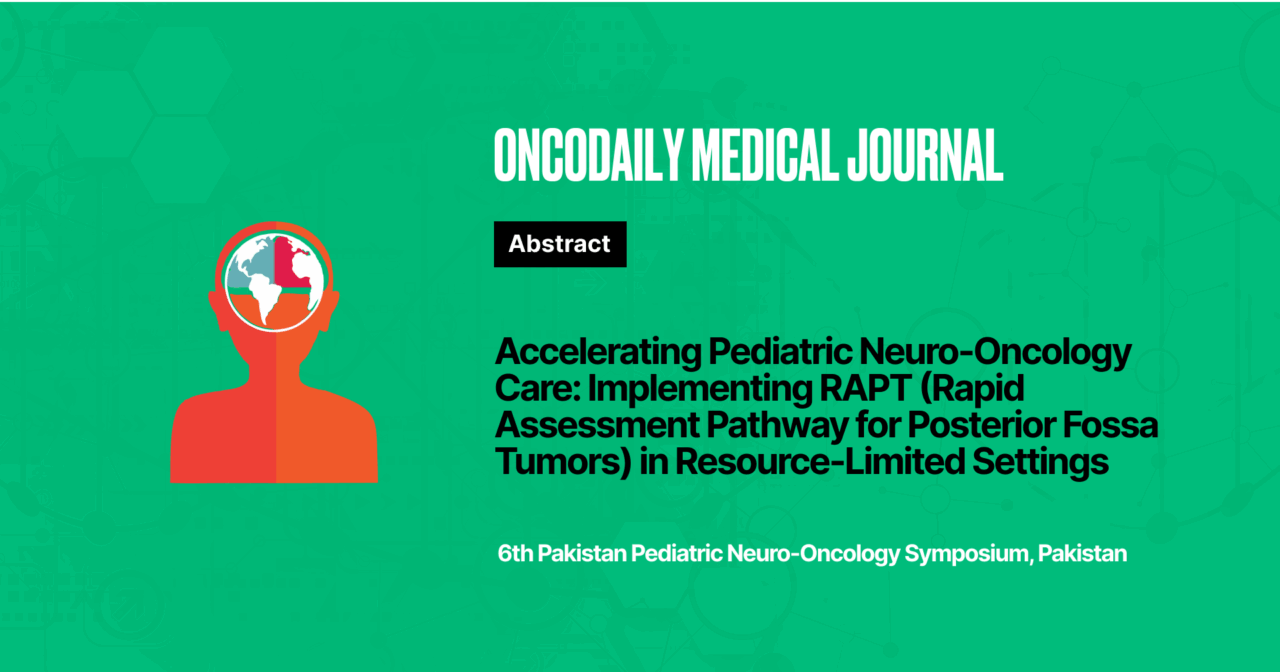Accelerating Pediatric Neuro-Oncology Care: Implementing RAPT (Rapid Assessment Pathway for Posterior Fossa Tumors) in Resource-Limited Settings
Abstract
Introduction: Posterior fossa tumors pose significant challenges due to their location and the critical structures they affect. Early detection and accurate diagnosis are crucial in managing these tumors, as they often require a multidisciplinary approach involving neurosurgeons, pediatric oncologists, neurologists, radiation oncologist, intensivist and radiologists to intervene promptly and minimize neurological deficits.
In our institute, late presentations of more than 6 months of symptoms delayed acceptance of patients more than 28 days due to need of radiological confirmation of diagnosis as per hospital acceptance policy, delayed surgical resection of tumor more than 4 weeks along with delayed commencement of an adjuvant treatment more than 12 weeks were main hinderances that affects outcome in pediatric patients with posterior fossa tumors.
With collaboration of institutional departments including pediatric oncologist, neurosurgeons, radiologist, radiation oncologist, intensive walk-in clinic team (where patient come for first visit) to form RAPT pathway to improve survival outcome by expedition of patient acceptance, urgent surgical intervention and start of adjuvant therapy within 4-6 weeks.
Methodology: This is retrospective comparative cohort study from a tertiary care cancer hospital in Pakistan after seeking required approval. This data is from January 2021 to February 2025 including two cohorts. Regular pathway and RAPT.
Anonymized data was collected from electronic medical records. Demographic details, duration of symptoms, acceptance for treatment from walk-in clinic, time lapse between initial presentation to surgical interventions, frequency of shunt/EVD insertion, start of adjuvant treatment were collected and analyzed using SPSS 27.
The objective of this study is to expedite the diagnosis and treatment of children with posterior fossa tumors.
Results: A total of 59 patients were included, 30 patients were included in Regular pathway, and 29 patients were included in RAPT. Regular pathway median acceptance of patients was 8 days as compared to RAPT which was 4 days with p value of <0.001. Frequency of shunt insertion was reduced significantly in RAPT compared to regular pathway. 90% of patients in RAPT were operated within 72 hours of acceptance as compared to regular cohort in which 55% patients had surgery within 4 weeks with significant p value of < 0.001. Average duration of start of adjuvant therapy in RAPT was within 6 weeks while in regular pathway it was 7 weeks.
Conclusion: Rapid Access Pathway for Treatment (RAPT) has demonstrated a significant improvement in the timeliness of care for pediatric patients diagnosed with posterior fossa tumors. Early intervention facilitated by RAPT may contribute to better short-term outcomes and reduced treatment delays. However, comprehensive long-term follow-up is essential to evaluate its impact on overall survival rates and the quality of life of these patients.
Conflict of Interest: None
Funding: None
Disclosure Statement: None
License: This article is published under the terms of the Creative Commons Attribution 4.0 International License (CC BY 4.0).
© Irfana Ishaq Sindhu, 2025. This license permits unrestricted use, distribution, and reproduction in any medium, provided the original author and source are credited.





